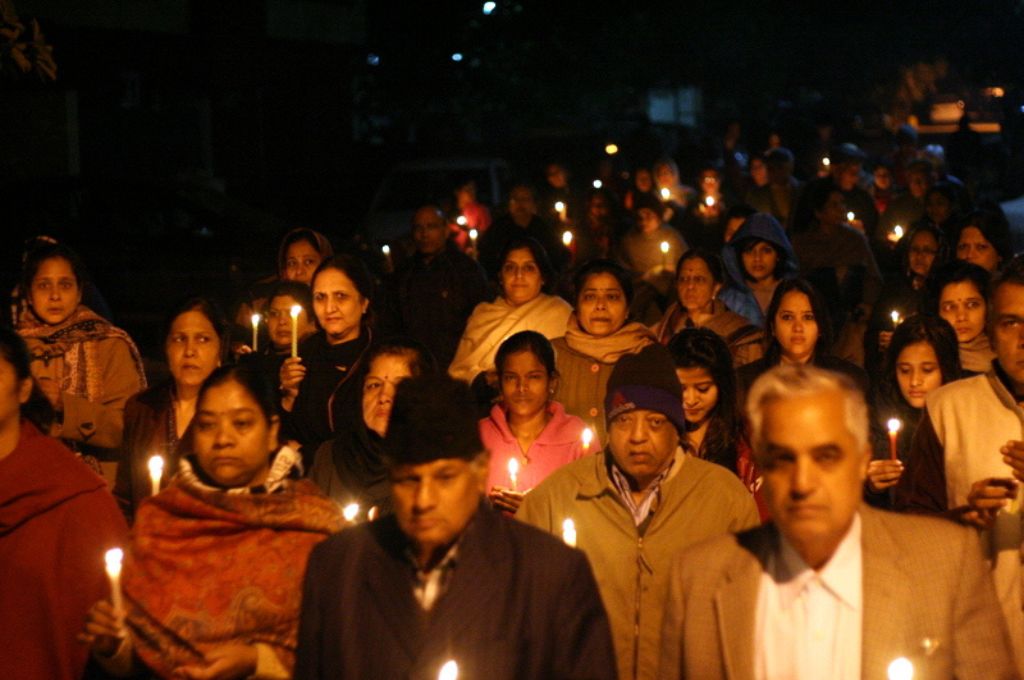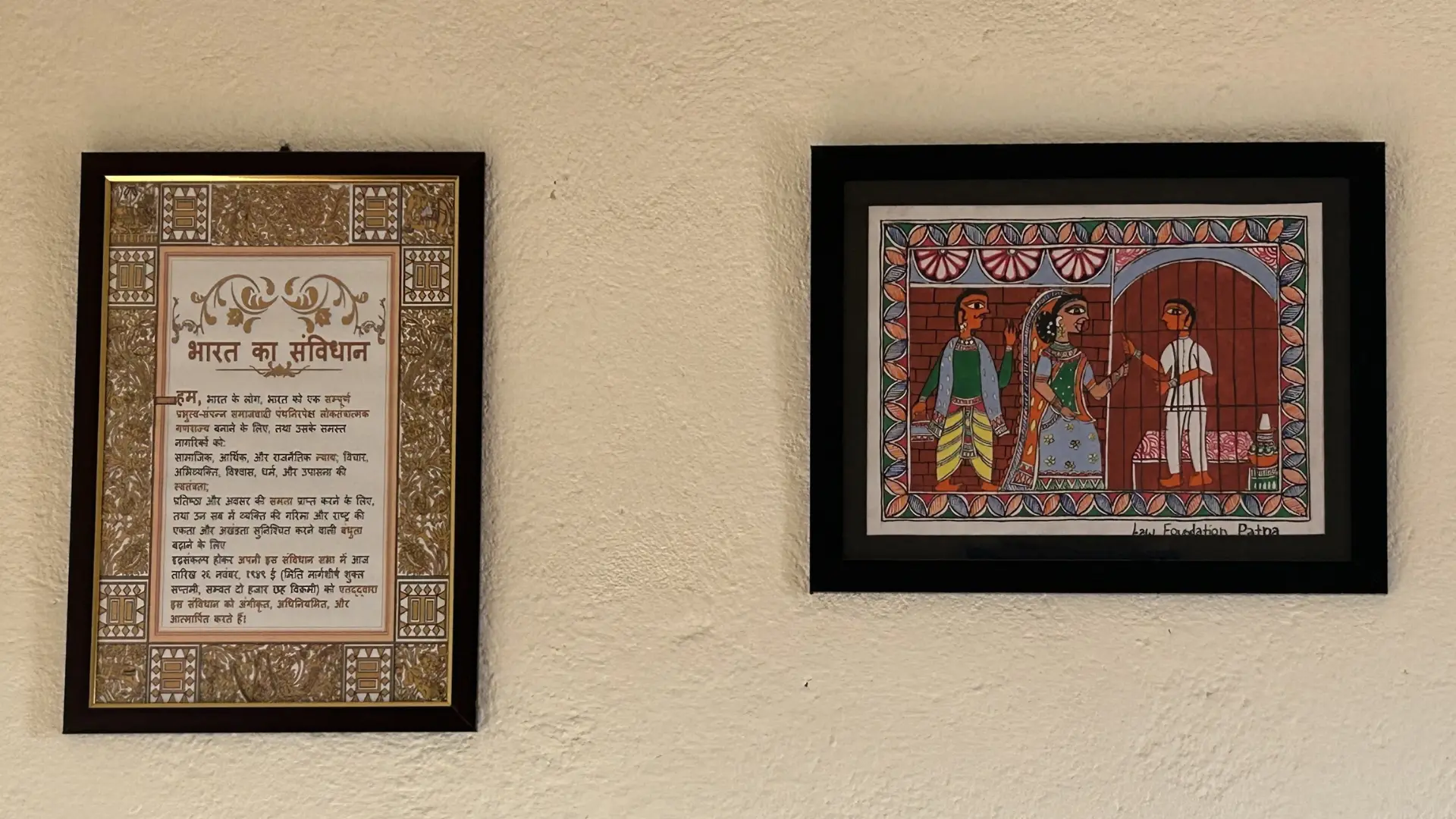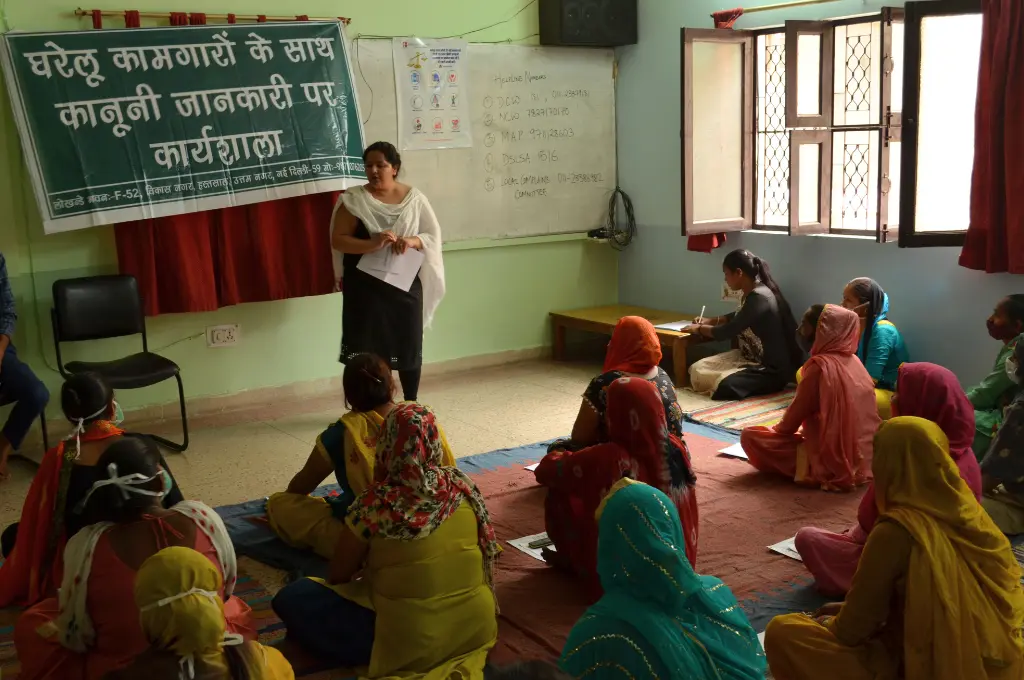In Athens there is a hill called Pnyx, where Athenians would gather to discuss political issues and make decisions about the future of their town. This was the Athenian version of a public forum in the first democratic tradition in the world. The discussions were attended by all citizens, including those that were a part of the 18,000-strong Ekklesia or Athenian Parliament. It was an opportunity to learn from fellow citizens and refine ideas and thoughts that could benefit society as a whole. Even today, citizen participation in a democratic system extends beyond conversing with the government of the day. Civic movements are the cornerstone of democratic values and can only come from engaging with fellow citizens outside of governmental constructs.
The modern democratic form of government has three key elements: a system for choosing/replacing the government through free and fair elections, protection of human rights of all citizens, and a rule of law that applies equally to all citizens. But it is only when a citizen puts these elements into practice that you can say your form of government is a democracy. In essence, only when a citizen actively participates does democracy come to life.
The importance of participation in democracy is widely known and universally accepted. Despite this we see a noticeable gap between the citizens who would like to engage and those who actually end up doing so. There may be many reasons for this, one of which is a lack of awareness about how to engage effectively. In India, citizens can engage at multiple levels of government—union, state, and local—as well as with fellow citizens. Here’s how:
Engaging with the Union Government
1. Choosing representatives
Every five years (under ordinary circumstances), ‘We the People of India’ are called upon to vote into the Lok Sabha those representatives whom we believe worthy and capable to fulfil their roles. With the turnout growing significantly from 58 percent in 2009 to 67 percent in 2019, it is safe to say that more than half of the national population engages with the Union Government through this medium.
2. Co-creating laws
Various ministries of the Union Government seek public feedback on draft policies, amendments, proposed plans, and ideas. Union ministries drafting laws on specific subjects often invite comments from citizens and stakeholders to ensure the proposed law incorporates the lived experiences of those it will affect the most. Citizens can communicate their feedback directly to the ministries or make use of platforms like ours that enable this consultative process.
This form of gathering public feedback is encouraged by a 2014 government policy called the Pre-Legislative Consultation Policy, which encourages lawmakers to open a draft of the document for public consultation for a minimum period of 30 days. In our experience at Civis.vote, we have observed that, often, anywhere between 30 and 70 percent of the feedback received from communities finds its way into the final document, allowing citizens’ voices to be incorporated into the law. For instance, from the feedback that was collected on the draft Transgender (Protection of Rights) Rules on Civis, 52 percent was incorporated into the final law. By participating in the lawmaking process, citizens get a sense of ownership, allowing consensus to be built through dialogue.
3. Asking questions
Citizens are guaranteed the right to demand transparency, accountability, and answers from the government in the Right to Information Act, 2005. While the onus of maintaining accountability is on elected and other government officials, a citizen has the right to ask any questions related to public information and the working of the government.
The RTI Act has created a structure that allows citizens to ask public officials questions on their working, the departments’ functioning, budgets and projects, to name a few areas. By law, public officials are obliged to answer such questions within a period of 30 days. The process of requesting information under this law is very simple and the application can be made either offline or online.
4. Observing Parliament
All proceedings of the upper and lower houses of Parliament are broadcast live for all Indian citizens, free of charge. Observing these proceedings gives us a deeper understanding of the representatives we chose and the performance of the government in power—information that should inform our future choices. The proceedings of both houses of Parliament can be accessed on television or through their official website. The website also gives citizens access to archives of the proceedings, including answers to questions presented by the members.
5. Participating online through MyGov.in
Launched on July 26, 2014, MyGov.in is an online platform of the government that promotes active citizen participation through various consultations, quizzes, polls, surveys, and competitions. The widely popular platform is an avenue for crowdsourcing governance ideas from citizens. For example, the Ministry of Earth Sciences, as a part of the Namami Tate campaign, recently invited suggestions from citizens on innovative ways of conducting a beach clean-up activity and received more than 2,000 suggestions directly from affected groups, all of which are to be considered while formulating a plan to address coastal pollution. Citizens can directly create their accounts on MyGov.in and engage with the content.
Participating with your state government
Along with voting in state elections and filing RTIs to various ministries, here are other ways to engage with your state government:
Participating in town halls
Akin to public consultations hosted by the Union ministries, states governments host town halls and public gatherings to discuss important issues where policy is lacking or requires amending. Such town halls are an opportunity for citizens to share their experiences, thoughts, and concerns with the government, all of which are considered while drafting a policy or making changes as needed. The authorities conducting such town halls or other similar forums usually publicise them using online and traditional media sources.
The most recent example of this was when the Tamil Nadu government was considering banning or regulating online games. After receiving the report from the committee—under the chairmanship of Justice (Rtd) K Chandru—constituted to consider fresh legislation in this matter, the state government invited all relevant stakeholders (the general public, parents, teachers, students, youth, psychologists, social activists, and online gaming service providers) to a town hall to discuss their views on the possible ban or regulation. A platform was given to discuss not only its repercussions on those availing the services of the games but also implications on those involved in the industry. Soon after, the cabinet of the state issued an ordinance that banned online gaming in the state.

Participating with your municipality
Along with voting in municipal, panchayat, and other local elections and filing RTIs to various departments, here are some ways to engage with your local government:
Wards/panchayats/blocks are smaller than constituencies, and hence those elected to run them have the capacity to be more involved and engage with their citizens. While the purview of the elected officials of a ward is limited to addressing municipal issues like water, sanitation, maintenance of public places such as parks and roads, chances of having a direct and meaningful impact is higher when you engage with such officials to address these civic issues. Moreover, there are a number of factors that work in favour of faster and positive outcomes: an active and involved citizenry, direct access to ward offices, and the transparent functioning of civic bodies.
Citizens can approach their local government officials by either visiting their ward/panchayat offices, writing letters to them, or calling up their helpline numbers wherever available. Some local governments—for example, in Mumbai—have also built their social media ecosystems in a way that citizens can use these platforms to highlight their concerns.
Apart from approaching officials for specific issues, citizens are invited to submit their feedback on policy and budgetary decisions promoted by municipal corporations or panchayats. Citizens can also review the workings of their local governments through reports published by organisations like Praja.
Citizen-to-citizen engagement
1. Joining civic/political movements
Participating in movements or demonstrations about issues that affect you or those you feel strongly about can help build solidarity within communities. Alternatively, exploring political ideologies through study circles or political party platforms is another way to exercise your civic participation muscle.
2. Building your community
Volunteering with civil society organisations or clubs for the betterment of one’s community is a powerful tool in one’s democratic arsenal. Small actions such as participating in clean-up drives or contributing to resident movements such as advance local management (ALM) can help build a stronger community. Working within one’s skill set is a great place to begin.
3. Using your voice
Be it debating in competitions, engaging in conversations at social events, or creatively expressing your opinion through social media, citizens have many options to voice their thoughts and opinions on governance issues. The simple act of reflecting and relaying one’s thoughts is the first step on the long ladder towards becoming an active citizen. Contributing your thoughts and expressions by writing articles or using social media to express your voice and starting dialogue on political or governance issues is also an important mode of citizen engagement. Platforms like YouthKiAwaaz and YourStory have been instrumental in providing a space for citizens to engage.
4. Creating community awareness
Building civic awareness around issues of local and national importance extends beyond writing. Theatre groups and other art collectives have often used their art to start conversations on important social and political issues. Their performances have helped legitimise oppressed conversations and provided an avenue for citizens to mobilise and bring about institutional change. For instance, a group of young citizens—or ‘justice jagriks’—from the organisation ComMutiny, belonging to the village Harda in Madhya Pradesh, used Kabir ke dohe (the poet Kabir’s couplets) to explain constitutional rights to their fellow citizens. There are also many groups of theatre artists who perform street plays in Delhi to start conversations on the rights of women.
5. Joining a protest
Protests have been an integral part of civil society movements in India since before Independence and continue to be a platform for freely expressing your opinions with fellow citizens and governments. Protesting is legal in India and backed by two fundamental rights from the Constitution—the right to freedom of speech and expression and the right to assemble peacefully without arms. However, it is important to note that protests must be conducted only if necessary compliance is met and conditions are fulfilled (for example, acquiring permissions for loudspeakers and tents). It is also important to note that responses from authorities may differ despite full compliance with the law. In such cases, it is best to arm yourself with the correct information on citizens’ rights and recourses available to you.
There are many established ways for citizens to engage with governments—some derived from laws and some directly from communities. There is no one right way to engage; instead, the democratic set-up offers many avenues for citizens to explore how they wish to communicate with the government and each other.
So go forth, engage!
—
Know more
- Read this simple explainer to know more about your right to vote.
- Learn how to make an RTI application online here.
- Understand more about your right to protest as a citizen with this guide to lawful protesting.
- Read this interview with renowned social activist Aruna Roy, a driving force behind the movements that led to the RTI Act and MGNREGA







